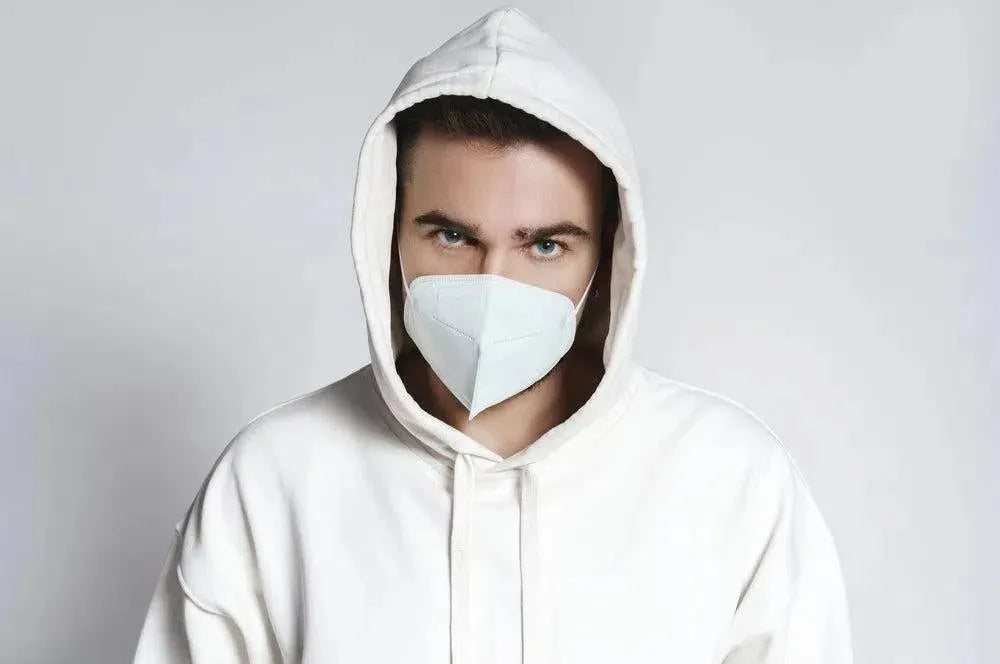KN95 vs. N95 Face Masks: The Ultimate Comparison Guide

With the ongoing COVID-19 pandemic, face masks have become an essential accessory in our daily lives. As people are becoming more aware of the importance of wearing masks, the market is flooded with different types of masks, making it challenging to choose the right one. Two popular options that you may have come across are KN95 and N95 face masks. In this article, we will compare KN95 face masks to N95 face masks to help you make an informed decision.
What Are KN95 Face Masks?
KN95 masks are a type of respiratory protective equipment designed to achieve a very close facial fit and efficient filtration of airborne particles. They are regulated by the Chinese government under the GB2626 standard. KN95 masks are similar to N95 masks in terms of their filtration capabilities but are manufactured and standardized outside of the United States.
What Are N95 Face Masks?
N95 masks, on the other hand, are respiratory protective devices approved by the National Institute for Occupational Safety and Health (NIOSH) in the United States. These masks are designed to filter out at least 95% of airborne particles, including viruses and bacteria. N95 masks are commonly used in healthcare settings and by frontline workers.
Filtration Efficiency
When it comes to filtration efficiency, both KN95 and N95 masks are highly effective at filtering out airborne particles. Both masks are capable of filtering out 95% or more of particles that are 0.3 microns or larger in size. This includes particles such as dust, pollen, bacteria, and viruses. It's important to note that proper fit and seal are crucial for the masks to be effective in filtering out these particles.
Differences in Manufacturing Standards
The main difference between KN95 and N95 masks lies in their manufacturing standards and country of origin. KN95 masks are manufactured and regulated in China under the GB2626 standard, while N95 masks are produced and approved in the United States under the NIOSH standard (42 CFR 84).
Manufacturers of KN95 masks must meet specific requirements set by the Chinese government, including filtration efficiency, inhalation resistance, and fit testing. Similarly, N95 mask manufacturers in the United States have to meet the stringent quality standards set by NIOSH.
Fit and Seal
Both KN95 and N95 masks are designed to provide a tight facial fit to create a seal that maximizes filtration efficiency. The masks should cover the nose, mouth, and chin entirely and fit securely against the sides of the face without any gaps. A proper fit and seal are essential for these masks to effectively filter out airborne particles.
It's important to note that achieving a proper fit can vary from person to person. Factors such as facial shape and size can affect the fit of the mask. Some individuals may find that one type of mask fits them better than the other. It's advisable to try different masks to determine which one provides the best fit for you.
Usage and Recommendations
KN95 masks are widely used for general public use in many countries, including Canada and European countries, where N95 masks may be in short supply. In the United States, N95 masks are primarily recommended for healthcare professionals and frontline workers due to their availability and higher filtration efficiency standards.
Both KN95 and N95 masks are intended for single-use and should be discarded after use. It's important to follow the manufacturer's instructions for proper usage and disposal to ensure maximum effectiveness.
Summary
While both KN95 and N95 face masks offer high filtration efficiency, there are some key differences to consider when choosing the right mask for your needs. KN95 masks are manufactured in China and regulated under the GB2626 standard, whereas N95 masks are made in the United States and approved by NIOSH. Both masks require a proper fit and seal for maximum effectiveness.
Ultimately, the choice between KN95 and N95 masks depends on your specific requirements and recommendations from health authorities in your region. It's essential to stay informed and prioritize masks that meet the required filtration standards. Remember to wear a mask consistently and follow other preventive measures to protect yourself and others against COVID-19.
Visit another user's Shopify store by clicking here. Kindly note that this is a promotional link, and we assume no liability for the content on the linked store.






